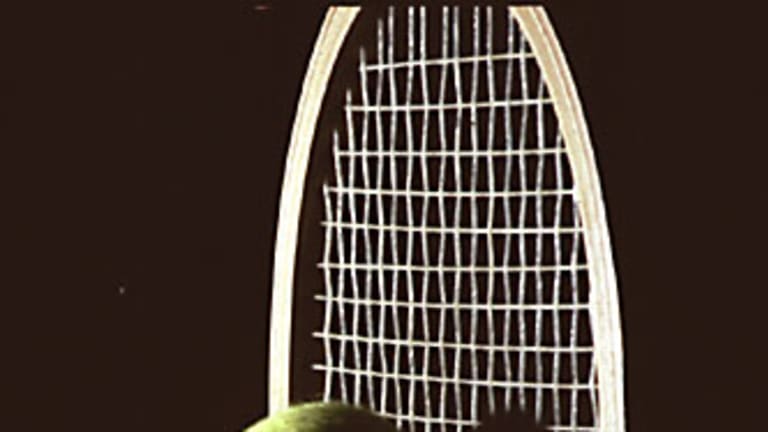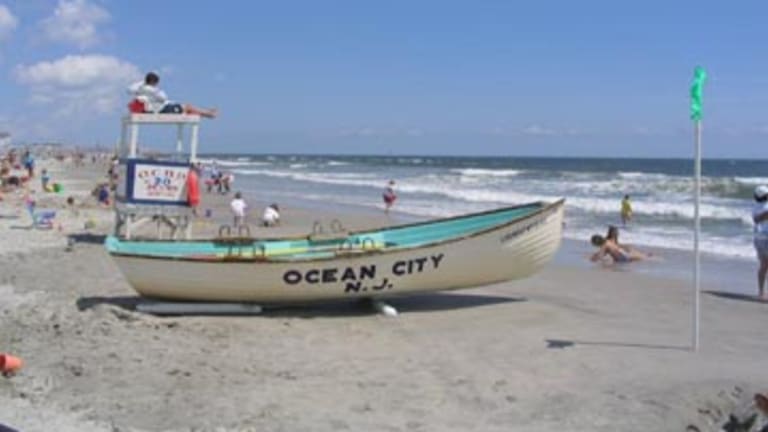With nothing earth-shattering, or even earth-nudging, going on in the professional game at the moment—the hard-court season takes a few weeks just to get into first gear—it seems an appropriate time to catch up on two other traditional summer pastimes: an afternoon of baseball and a couple of days at the beach. On Wednesday I’m going to see the (world champion) Philadelphia Phillies play the Cubs, and after that I’m heading for the Jersey Shore—"going down the shore," as they say—for a mini-family vacation.
Our beach town of choice has always been Ocean City, an alcohol-free, family-oriented little hamlet that explodes over the summer months, when something like 200,000 people jam themselves within 100 yards of the Atlantic. My grandparents, who lived in the Philadelphia suburbs, owned a house there. Our family visited for a week each August when I was a kid. From what I’ve heard, this is where I was first bitten by the tennis bug. My grandmother liked to tell the story of a week I spent there with her and my grandfather, a devotee of the sport, when I was 5. He took out me out to the town’s public courts the first day, and I guess they couldn’t get the racquet away from me the rest of the week. I would walk out of my bedroom with it in the morning.
What I do remember of vacations in Ocean City is a sense of time slowing down and becoming hazily elastic. I was young enough then to savor the art of doing nothing for hours. I’ve never recaptured that feeling as an adult, even when I’m on vacation. I may spend an entire day sitting on the beach, but to enjoy it I have to rationalize that time as somehow productive—there will be only so many more opportunities to spend an uninterrupted afternoon with a Trollope novel, so I better make the most of them.
I’ve heard that our experience of time speeds up as we get older; or maybe the past elongates in our minds when we remember it, because we experience those moments so much more intensely as kids. Either way, the lion’s share of my day in Ocean City could be profitably spent on the couch in my grandmother’s small, hot TV room playing Sorry!; watching an entire Phillies game, sans DVR or even remote control; winning a checkers marathon; losing in APBA baseball, a primitive and highly addictive fantasy board game, to a family friend; reading Bridge Over the River Kwai or Tom Sawyer; or just lying there staring blankly out the window at the town’s big blue water tank through the murky humid air. (The bigger South Jersey shore towns have water towers with their names emblazoned across them. Legend had it that a friend’s heavy-partying older brother, after a summer spent in Stone Harbor, climbed the tower there and spray-painted a “D” at the end of the first word.) Doing nothing then really meant doing nothing, without a thought to the future.
Outside of that back room, Ocean City, an island three blocks wide and hundreds of blocks long, spreads out along the shoreline in both directions. At our end, the newer end, each block was (and still is) stuffed with a dizzying number of duplexes. To drive toward the other end is to go back in time. Halfway down, the grand old single-family beach houses begin, including, most famously, the brilliantly white mini-mansion where Grace Kelly spent her summers. At the other end is the boardwalk, equally grand in its own way, a timeless mess of pizza, cotton candy, air hockey, neon-signed motels, Kohr’s soft ice cream, miniature golf, ferris wheels, and the assorted humanity of the Mid-Atlantic flaunting its newly tan skin, for better and for worse. Little has changed here in the last 30 years, but skin wasn't always in. My grandmother loved to recall the 1920s boardwalk, when people dressed up, in slacks, dresses, jackets, and hats, for the customary evening stroll.

